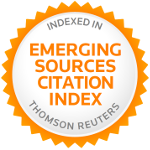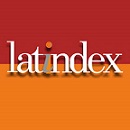E -learning in times of COVID-19. What have we learned?
DOI:
https://doi.org/10.46661/ijeri.6361Keywords:
COVID-19, education, digital competence, digital gap, Educational TechnologyAbstract
The crisis caused by COVID-19 has had a great impact on society in general and educational systems in particular. In this context, numerous studies carried out before and during the pandemic show the importance of technologies as the main guarantor tools of distance teaching and learning processes. However, there are still numerous gaps to overcome for these processes to be 100% effective. Therefore, this study tries to present an informed and critical judgment of the main variables that have affected the success or failure of virtual educational practices. In this sense, a review of the latest research and educational reports is carried out before and during the pandemic. As a result, the results are presented in three large blocks: initial questions to take into account, digital gaps and contributions for the future. It concludes by making a summary of the main facilitating factors of e-learning (politics, teachers, students, family ...) and deliberates on the training need of all the groups involved.
Downloads
References
Aditya, D.S. (2021). Embarking digital learning due to COVID-19: Are teachers ready? Journal of Technology and Science Education, 11(1), 104-116. https://doi.org/10.3926/jotse.1109
Aloizou, V., Chasiotou, T., Retalis, S., Daviotis, T., y Koulouvaris, P. (2021). Remote learning for children with Special Education Needs in the era of COVID-19: Beyond tele-conferencing sessions. Educational Media International, 1-21. https://doi.org/10.1080/09523987.2021.1930477
Álvarez-Álvarez, C. y García-Prieto, F. (2021). Brecha digital y nuevas formas académicas en la escuela rural española durante el confinamiento. Educar, 57(2), 397-411. https://doi.org/10.5565/rev/educar.1250
Avendaño-Castro, W. R., Hernández-Suárez , C., y Prada-Núñez, R. (2021). El docente universitario ante la emergencia educativa. Adaptación a las TIC en los procesos de enseñanza. Educación Y Humanismo, 23(41).
https://doi.org/10.17081/eduhum.23.41.4354
Banco Interamericano de Desarrollo (2020). La educación superior en tiempos de COVID-19. Aportes de la Segunda Reunión del diálogo Virtual con Rectores e Universidades Líderes de América Latina. Banco Interamericano de Desarrollo.
Bas, M. (2021). La educación superior en Iberoamérica en tiempos de pandemia Impacto y respuestas docente. Fundación Carolina.
Beardsley, M., Albó, L. Aragón, y P. Hernández-Leo, D. (2021). Emergency education effects on teacher abilities and motivation to use digital technologies. British Journal of Educational Technology, 52, 1455–1477. https://doi.org/10.1111/bjet.13101
Bubb, S., y Jones, M. A. (2020). Learning from the COVID-19 home-schooling experience: Listening to pupils, parents/carers and teachers. Improving schools, 23(3), 209-222. https://doi.org/10.1177%2F1365480220958797
Burgos, C., Vázquez-Cano, E., López-Meneses, E. y Adaos, R. (2020). DIFPRORET PROJET: Analysis of educational difficulties, proposals and challenges facing the COVID-19. IJERI: International Journal of Educational Research and Innovation, 15, 17-34. https://doi.org/10.46661/ijeri.5145
Cano, S., Collazos, C., Flórez-Aristizabal, l., Moreira, F. y Ramírez, M. (2020). Experiencia del aprendizaje de la Educación Superior ante los cambios a nivel mundial a causa del Covid-19. Campus Virtuales, 9(2), 51-59.
Carrillo, C., y Flores, M. A. (2020). COVID-19 and teacher education: A literature review of online teaching and learning practices. European Journal of Teacher Education, 43(4), 466-487. https://doi.org/10.1080/02619768.2020.1821184
Casal-Otero, L., Barreira-Cerqueiras, E. M., Mariño-Fernández, R., y García-Antelo, B. (2021). Competencia Digital Docente del profesorado de FP de Galicia. Pixel-Bit. Revista De Medios y Educación, 61, 165-196. https://doi.org/10.12795/pixelbit.87192
Casimiro, W., Casimiro, C, Barbachán, E. y Casimiro, J. (2020). Stress, Anguish, Anxiety and Resilience of University Teachers in the Face of Covid-19. Utopía y praxis Latinoamericana, 25(7), 453-464.
CEPAL-UNESCO (2021). La educación en tiempos de la pandemia de COVID19.UNESCO
Çimen, B. y Hangül, S. (2021). Digital Immigrant Teachers’ Perceptions about Digital. European Journal of Education and Psychology, 14(2), 1-21.
Darling-Hammond, L., y Hyler, M. E. (2020). Preparing educators for the time of COVID… and beyond. European Journal of Teacher Education, 43(4), 457-465. https://doi.org/10.1080/02619768.2020.1816961
Ellis, V., Steadman, S. y Mao, Q. (2020). Come to a screeching halt’: Can change in teacher education during the COVID-19 pandemic be seen as innovation? European Journal of Teacher Education, 559-572.
https://doi.org/10.1080/02619768.2020.1821186
Engzell, P., Freya, A., y Verhagen, M. (2021). Learning loss due to school closures during the COVID-19 pandemic. PNAS, 118(17). https://doi.org/10.1073/pnas.2022376118
Ewing, L. y Cooper, H. (2021). Technology-enabled remote learning during Covid-19: perspectives of Australian teachers, students and parents. Technology, Pedagogy and Education, 30(1), 41-57. https://doi.org/10.1080/1475939X.2020.1868562
Garrison, D.R. y Anderson, T. (2005). El e-learning en el siglo XXI. Octaedro.
Garzón-Artacho, E., Sola-Martínez, T., Trujillo-Torres, J. M., y Rodríguez-García, A. M. (2021). Competencia digital docente en educación de adultos: un estudio en un contexto español. Pixel-Bit. Revista De Medios y Educación, 62, 209-234. https://doi.org/10.12795/pixelbit.89510
Gil-Fernández, R., León-Gómez, A., y Calderón, D. (2021). Influence of COVID on the educational use of Social Media by students of Teaching Degrees. Education in the Knowledge Society,, 22. https://doi.org/10.14201/eks.23623
Inciarte González, A., Paredes-Chacín, A. J., y Zambrano Villada, L. M. (2020). Docencia y tecnologías en tiempos de pandemia covid-19 / Teaching and technologies in times of covid-19 pandemic. Utopía y Praxis Latinoamericana, 25(1), 195-215.
Iniciarte, A., Paredes-Chacín, A. y Zambrano, L. (2020). Docencia y tecnologías en tiempos de pandemia covid-19. Utopía y praxis Latinoamericana, 25(8), 195-215.
Kai, K.Y., y Tan, K.H. (2020). ESL Teachers’ Intention in Adopting Online Educational Technologies during COVID-19 Pandemic. Journal of Education and E-Learning Research, 7(4), 387-394. https://doi.org/10.20448/journal.509.2020.74.387.394
Kidd, W., y Murray, J. (2020). The Covid-19 pandemic and its effects on teacher education in England: how teacher educators moved practicum learning online. European Journal of Teacher Education, 542-558. https://doi.org/10.1080/02619768.2020.1820480
Kuhfeld, M. Y., Soland, J. y Tarasawa, B. (2020). Projecting the Potential Impact of COVID-19 School Closures on Academic Achievement. Educational Researcher, 49(8), 549–565. https://doi.org/10.3102%2F0013189X20965918
López-Noguero, F., García-Lázaro, I., y Gallardo-López, J. A. (2021). Consecuencias del COVID-19 en los centros educativos en función de su contexto socioeconómico y titularidad. https://doi.org/10.30827/publicaciones.v51i3.16709
Maile, R., Mena, J. y Feinauer, E. (2020). Faculty readiness for online crisis teaching: transitioning to online teaching during the COVID-19 pandemic. European Journal of Teacher Education, 523-541. https://doi.org/10.1080/02619768.2020.1815702
Mancera, C., Serna, L. y Barrios, M. (2020). Pandemia: maestros, tecnología y desigualdad. Nexos.
Morocho, M. (2021). El Aseguramiento de la Calidad de la Educación Superior en Latinoamérica y el Caribe en tiempos del COVID-19: Visión de las Instituciones de Educación Superior. CALED-Ecuador y UTPL-Ecuador.
Navarro-Espinosa, J. A., Vaquero-Abellán, M., Perea-Moreno, A.-J., Pedrós-Pérez, G., Aparicio-Martínez, P., y Martínez-Jiménez, M. P. (2021). The Higher Education Sustainability before and during the COVID-19 Pandemic: A Spanish and Ecuadorian Case. Sustainability, 13(11), 6363. http://dx.doi.org/10.3390/su13116363
OCDE (2019). Docentes en Iberoamérica: Análisis de PISA y TALIS. OCDE
Onyema, E. (2020). Impact of Coronavirus Pandemic on Education. Journal of Education and Practice, 11(13), 108-121.
Parmigiani, D., Benigno, V., Giusto, M., Silvaggio, C. y Sperandio, S. (2021). E-inclusion: online special education in Italy during the Covid-19 pandemic. Technology. Pedagogy and Education, 30(1), 111-124. https://doi.org/10.1080/1475939X.2020.1856714
Pedró, F. (2021). COVID-19 y educación superior en América Latina y el Caribe: efectos, impactos y recomendaciones políticas. Análisis Carolina, 36(1), 1-15.
Ramírez-Montoya, M. S. (2020). Transformación digital e innovación educativa en Latinoamérica en el marco del CoVId-19. Campus virtuales, 9(2), 123-139.
Reimers, F., y Schleicher, A. (2020). A framework to guide an education response to the COVID-19 Pandemic of 2020. OECD.
Ryan, T. (2021). Designing video feedback to support the socioemotional aspects of online learning. Educational Technology Research and Development, 69, 137–140 https://doi.org/10.1007/s11423-020-09918-7
Sainz, J., Sanz; I. y Capilla, A. (2020). Efectos en la Educación Iberoamericana:un año después de la COVID-19. OEI
Schleicher, A. (2020). The impact of covid-19 on education insights from education at a glance 2020. OECD
Scully, D., Lehane, P. y Scully, C. (2021). It is no longer scary’: digital learning before and during the Covid-19 pandemic in Irish secondary schools. Technology, Pedagogy and Education, 30(1), 159-181.
https://doi.org/10.1080/1475939X.2020.1854844
Sixto-García, J., Y Duarte-Melo, A. (2020). Self-destructive content in university teaching: new challenge in the Digital Competence of Educators. Communication & Society, 33(3), 187-199. https://doi.org/10.15581/003.33.3.187-199
Trujillo Sáez, F. (2021). The school year 2020-2021 in Spain during the pandemic . Joint Research Centre. http://dx.doi.org/10.2760/729245
Turpo-Gebera, O., Hurtado-Mazeyra, A., Delgado-Sarmiento, Y., y Peréz-Postigo, G. (2021). Satisfacción del profesorado con la formación en servicio online: aproximaciones desde la usabilidad pedagógica. Pixel-Bit. Revista De Medios y Educación, 62, 39-70. https://doi.org/10.12795/pixelbit.79472
VanLeeuwen, C. A., Veletsianos, G., Johnson, N., y Belikov, O. (2021). Never‐ending repetitiveness, sadness, loss, and “juggling with a blindfold on:” Lived experiences of Canadian college and university faculty members during the COVID‐19 pandemic. British Journal of Educational Technology. https://doi.org/10.1111/bjet.13065
Yates, A., Starkey, L., Egerton, B., y Flueggen, F. (2021). High school students’ experience of online learning during Covid-19: the influence of technology and pedagogy. Technology, Pedagogy and Education, 30(1), 59-73. https://doi.org/10.1080/1475939X.2020.1854337
Downloads
Published
How to Cite
Issue
Section
License
Copyright (c) 2022 Julio Cabero-Almenara, Rubicelia Valencia-Ortiz, Antonio Palacios-Rodríguez

This work is licensed under a Creative Commons Attribution-NonCommercial-NoDerivatives 4.0 International License.









